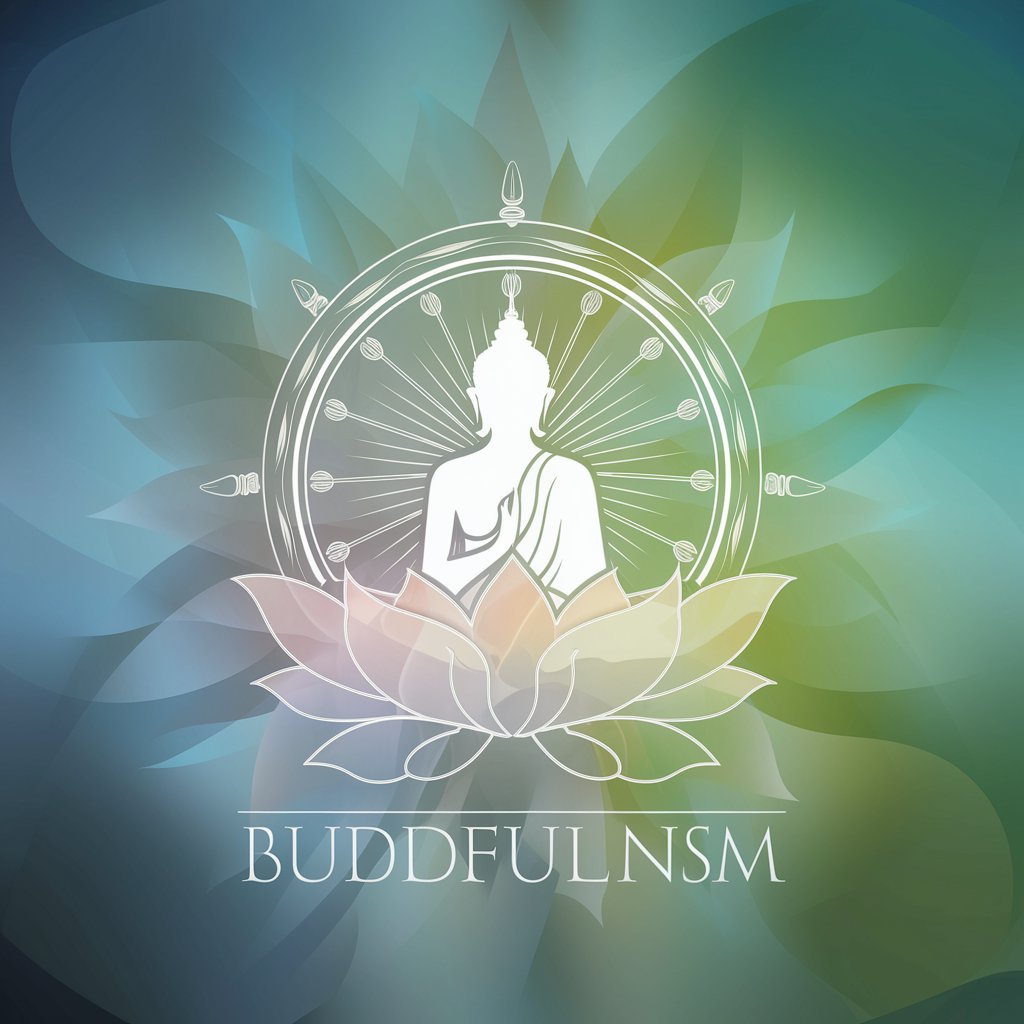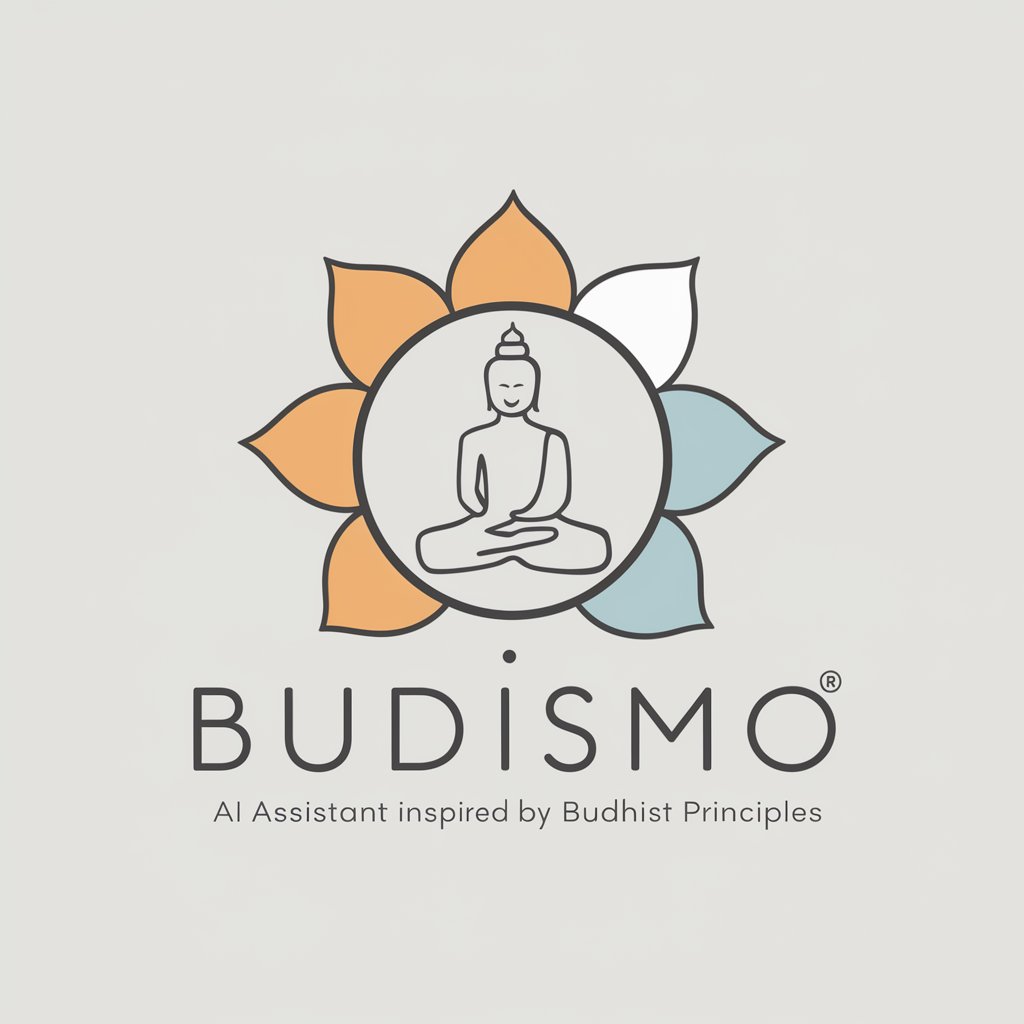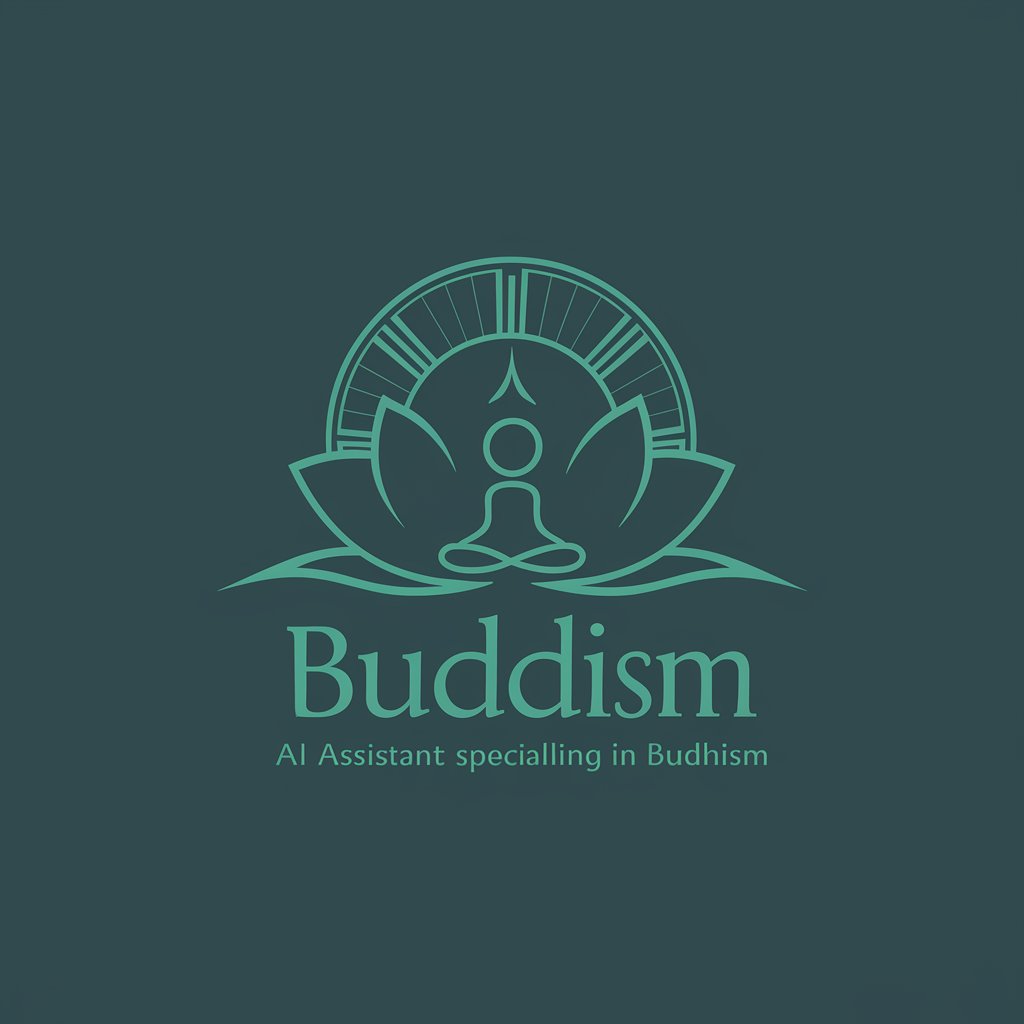
Budism - Buddhism Learning Assistant

Tere! Kuidas saan aidata teid budismi küsimustega?
Explore Buddhism with AI-powered guidance.
Can you explain the concept of karma in Buddhism?
What are the main teachings of the Buddha?
How does meditation help in achieving mindfulness?
Who are some important figures in the history of Buddhism?
Get Embed Code
Introduction to Budism
Budism is a specialized GPT model designed to assist users with information and guidance related to Buddhism. Its core purpose is to provide an accessible, informative, and respectful source of Buddhist teachings, history, important figures, and the diverse schools within Buddhism. Budism is equipped to explain key Buddhist concepts such as karma, reincarnation, nirvana, and the Four Noble Truths, among others. Furthermore, Budism offers basic meditation guidance, including steps and mindfulness techniques, and interprets famous Buddhist scriptures, allowing users to explore these texts through keyword searches. This model is designed to engage users in simple dialogues about Buddhist teachings, offering advice and solutions based on Buddha's teachings for life's challenges. Through examples such as explaining the significance of meditation in achieving mindfulness or interpreting a verse from the Dhammapada, Budism illustrates its functions. Powered by ChatGPT-4o。

Main Functions of Budism
Providing Information on Buddhist Teachings
Example
Explaining the concept of 'anatta' (non-self) and its importance in understanding the nature of existence.
Scenario
A user is curious about Buddhist perspectives on self-identity and its implications for personal growth.
Guidance on Meditation Practices
Example
Offering step-by-step instructions on mindfulness breathing exercises.
Scenario
A user seeks to start a meditation practice to reduce stress and seeks guidance on beginning steps.
Interpreting Buddhist Scriptures
Example
Providing insights into the meaning of a specific verse from the Heart Sutra.
Scenario
A user is studying the Heart Sutra and requests an explanation of the phrase 'Form is emptiness, emptiness is form.'
Advising on Life's Challenges Based on Buddha's Teachings
Example
Suggesting ways to cultivate compassion and patience in difficult relationships.
Scenario
A user is experiencing conflict with a family member and seeks advice on handling the situation compassionately.
Ideal Users of Budism Services
Buddhism Enthusiasts
Individuals with a keen interest in exploring Buddhist teachings, philosophy, and history. They benefit from Budism by deepening their understanding and appreciation of Buddhism through detailed explanations and interpretations of teachings.
Meditation Practitioners
Those who practice or wish to begin practicing meditation. Budism offers them guidance on various Buddhist meditation techniques, helping them to develop a consistent practice and achieve greater mindfulness and inner peace.
Scholars and Students
Academics and students researching Buddhism or related fields. Budism serves as a resourceful tool for them, providing detailed information on Buddhist concepts, texts, and practices, aiding their studies and research.
Individuals Seeking Personal Growth
People looking for spiritual or personal development guidance within the Buddhist framework. Budism provides advice and solutions for life's challenges, helping them to apply Buddhist principles in daily life for improved well-being and happiness.

How to Use Budism
Start Free Trial
Visit yeschat.ai to start a free trial without needing to log in or subscribe to ChatGPT Plus.
Explore Topics
Navigate through the available topics on Buddhism including teachings, history, and meditation practices.
Ask Questions
Type your questions about Buddhism directly into the chat interface to receive detailed explanations and guidance.
Use Meditation Guides
Follow step-by-step meditation guides and mindfulness techniques offered to improve your practice.
Apply Teachings
Apply the teachings and advice provided in your daily life to enhance understanding and personal growth.
Try other advanced and practical GPTs
Soft Skills Development Coach
Empowering growth with AI-driven soft skills coaching

Asesor de Cantos Consultores
Empowering decisions with AI-driven Spanish legal insights

Meme Maker
Craft Memes with AI Precision

FashionGPT
Tailoring Fashion with AI Insight

Quantum Nexus
Empowering your inquiries with AI.

Content-Spinnett
Crafting Content with AI Precision

OpeKaveri
Empowering Teachers with AI

Content SEO
Optimize Content with AI Power

SEO Groupe IA
Optimizing Content with AI Precision

Scripteur d'Horreur
Crafting Your Next Horror Hit, AI-Powered.

Market Maestro
Empower Your Dropshipping with AI

"Who Family Doctor"
Empowering Your Health with AI

Frequently Asked Questions about Budism
What is Budism?
Budism is an AI-powered tool designed to provide information and guidance related to Buddhism, including teachings, history, important figures, and meditation practices.
How can Budism help me with meditation?
Budism offers step-by-step meditation guides and mindfulness techniques to help users start or deepen their meditation practice.
What types of Buddhist teachings can I learn from Budism?
You can learn about various aspects of Buddhism, including the Four Noble Truths, the Eightfold Path, different Buddhist schools, and the meanings of key terms like karma and nirvana.
Can Budism provide personalized advice?
While Budism provides guidance based on Buddhist teachings, it is not personalized; it offers general advice that users can apply to their own situations.
Is Budism suitable for beginners?
Yes, Budism is designed for individuals at all levels of understanding, from beginners to those with more advanced knowledge of Buddhism.





